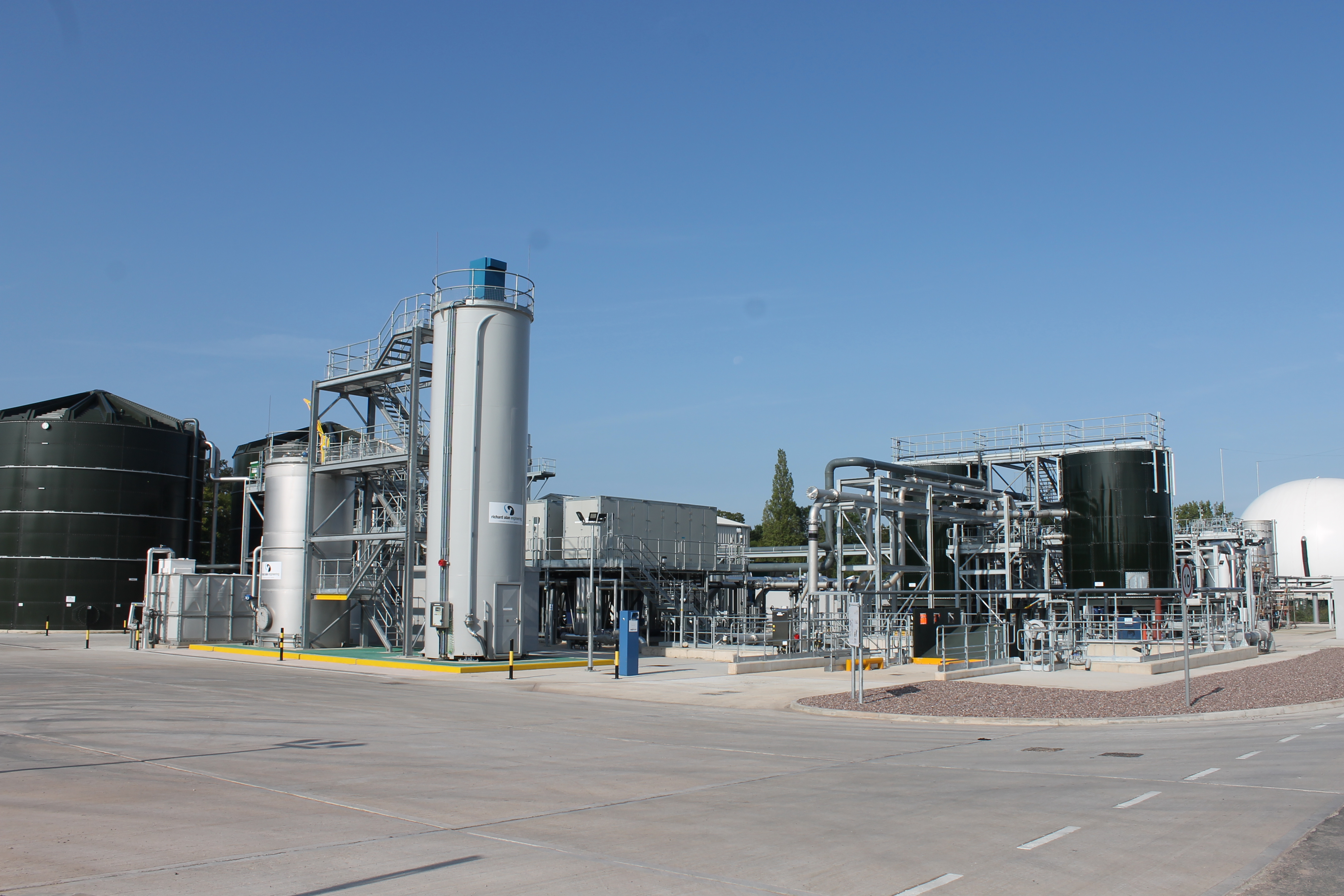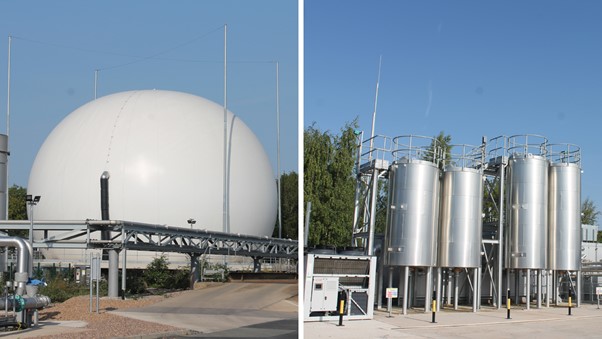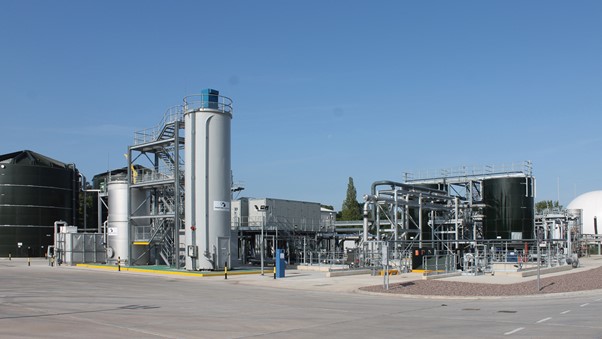
Award winning advanced anaerobic digestion project
This award-winning, brand new advanced £35m anaerobic digestion project has the capacity to provide 9,000 households with renewable gas. The two elements of the collaborative project for Severn Trent involved a Gas to Grid and Thermal Hydrolysis Plant.
- Service 1
Severn Trent Water
- Service 1
Strategic consultancy, complex programme delivery, asset optimisation
- Service 1
2020-2021 (Gas to Grid)
2022 (thermal hydrolysis plant)
Key Benefits
Enabled Severn Trent to generate renewable energy
contributing to net zero goals, and decarbonising the gas network in the Coventry area
76.2 tonnes
cut in carbon emissions and created long-lasting environment legacy
Winner of
NEC Sustainability & Climate Resilience of the Year award 2021
Summary of challenge
The design and build of a purpose-built brand-new, advanced digestion scheme was awarded to Costain by Severn Trent in 2019, with construction starting on site in early 2020.
The first element of the project involved a gas to grid (G2G) project to design, procure, install and commission a biogas upgrader unit and ancillary plant on Severn Trent Water’s existing Finham Sewage Treatment Works, which serves the area of Coventry.
The second element of the project involved the design and construction of a thermal hydrolysis plant (THP). This uses steam from two-gas boilers to hydrolyse sludge produced by the primary settlement tanks (PSTs), activated sludge plant (ASP) and imported sludge from regional sewage works around the Midlands. This process increases the gas yield of the sludge when digested to increase G2G throughput. Process commissioning started in January 2022 and contractual completion was in July 2022.

Solution
Our focus on early engagement and collaborative working with Severn Trent and partners was paramount to ensure the efficient installation of the £35m anaerobic digestion project, on time and within budget.
Managing a complex programme
The majority of the civil installation was self-delivered by our team of skilled engineers and project professionals with extensive water and gas experience. This allowed for flexibility in the installation programme to align with constantly changing delivery and subcontract dates affected by COVID-19 and material shortages.
The delivery team consisted of over 100 operatives at its peak, covering a range of trades. The construction phase included the installation of over 3.4km of buried drainage, three cofferdams and over 200 crane lifts.
The mechanical plant was largely designed for manufacture and assembly (DfMA) off site and was able to be delivered, lifted in and installed in a short period of time. One of the highlights was the installation of the 175 tonne THP which was installed in 10 working days.
The THP required complex commissioning to convert the digesters from conventional sludge to hydrolysed sludge. This was done in a phased approached, whilst closely monitoring the biology of the digesters, over the course of 3½ months. The health of the digesters directly impacts the sludge feed rate through continued monitoring of several factors including % dry solids, pH, ammonia content etc.

Digital innovation
Integrated 3D design and visualisation models were used to identify and mitigate potential challenges and hazards in a virtual environment prior to construction. The design team were proactive in holding hazard and operability (HAZOP) reviews with the client from the outset of the project, using these integrated models.
Health and safety
The delivery and commissioning phase saw over 490,000 hours worked with a AFR (Accident Frequency Rate per 100,000 hours worked) of 0.00. A total of 2,315 different people contributed to the scheme and over 3,200 hazard and safety observations were raised.
Due to the volatile nature of substances on site, stringent safety measures were adopted in line with the Dangerous Substances and Explosive Atmospheres Regulations 2002 (DSEAR). Procedures put in place during G2G commissioning and handover benefitted from cross-sector learning and Costain specialists from the energy sector helped shape the measures implemented.
Biodiversity
Our carbon strategy focused not just on the environmental benefits of decarbonising the gas network but also identifying opportunities to reduce carbon emissions throughout the lifecycle of works. For example, we worked with Severn Trent to gain approval to use uncontaminated excavated site material of over 15,000 tonnes to establish a wildflower meadow. This enhanced the environment and avoided costly and carbon heavy transportation away from site.
A showcase project
The first export of biogas to the network was delivered by the key milestone set for securing the Government’s Renewable Heat Incentive funded unit rate for output
The advanced digestion project has been shortlisted for several construction awards and won the NEC Sustainability & Climate Resilience of the Year award 2021, which recognised projects which have set out to reduce their overall impact on the environment in terms of carbon emissions, and /or resilience to climate change in alignment with government carbon reduction targets.
The project was showcased by Government, with a visit to the site by the then Department for Business, Energy & Industrial Strategy (BEIS) highlighting its investment in domestic, renewable energy generation.
Contact and social
Water
